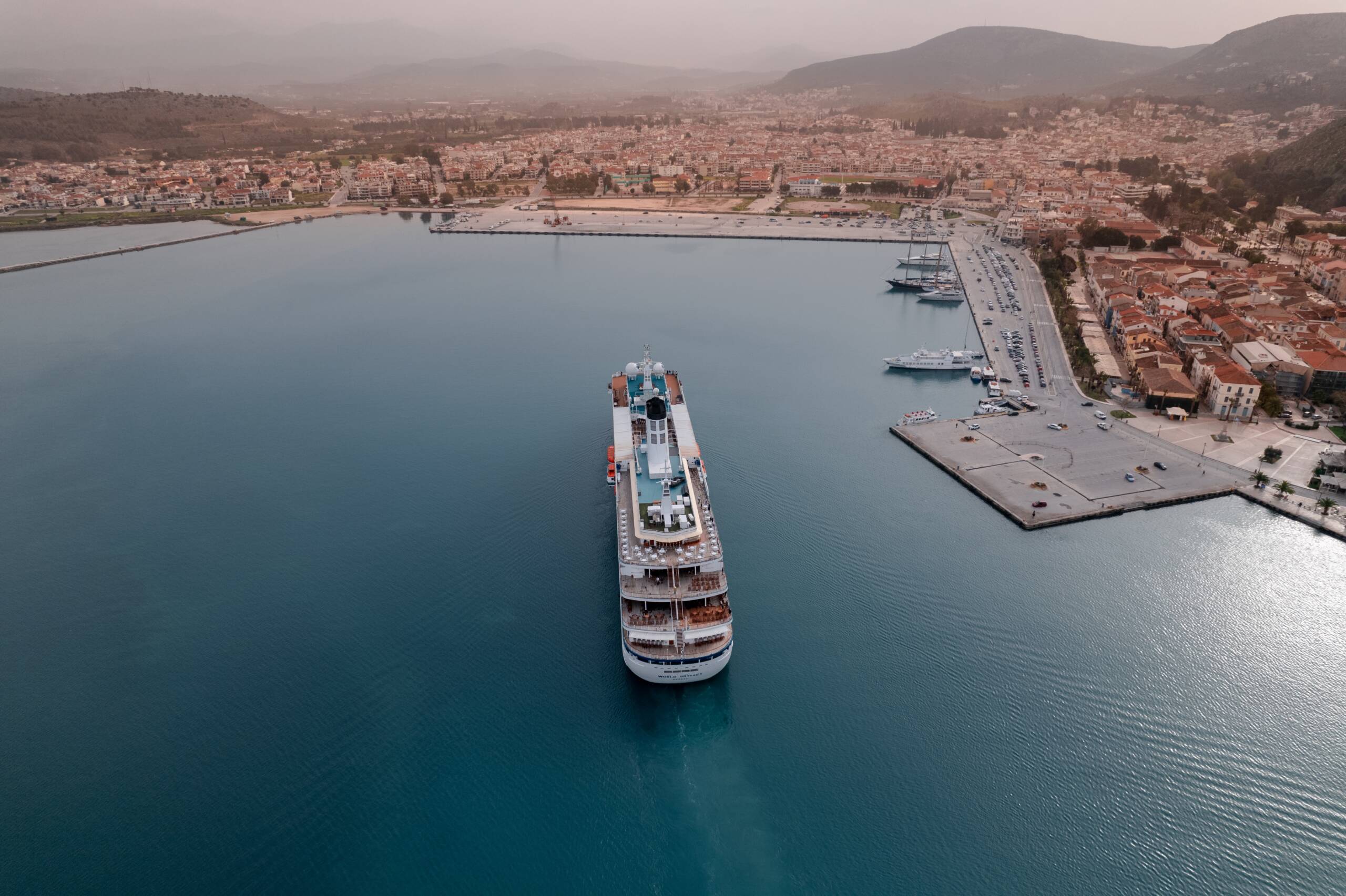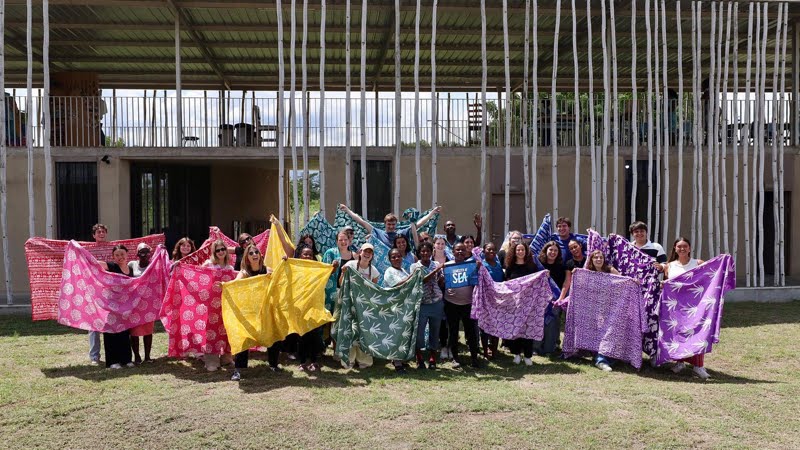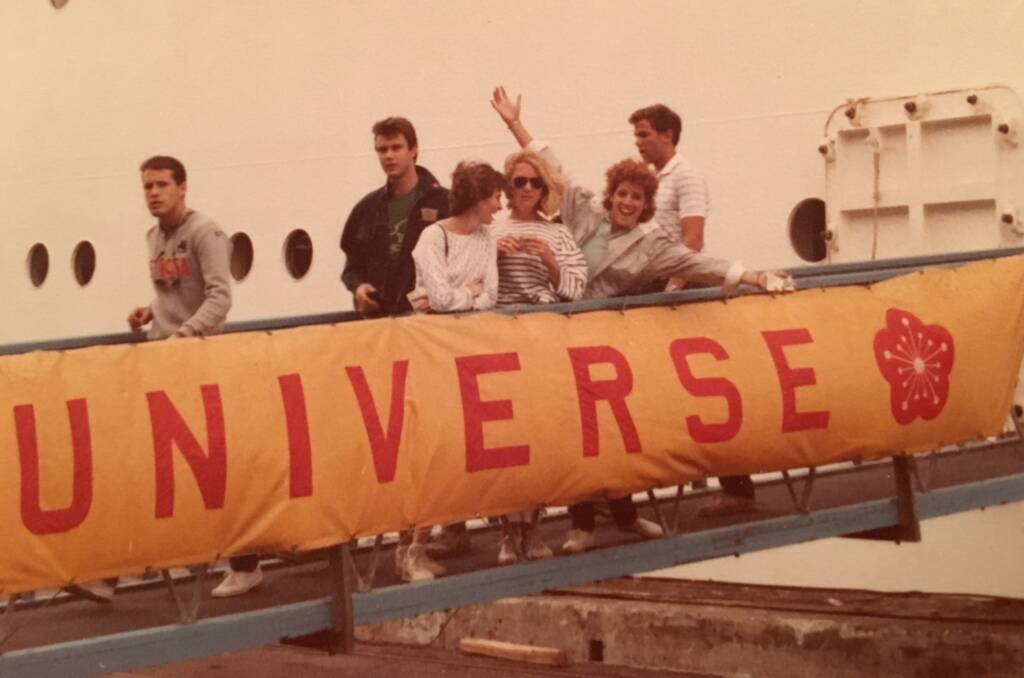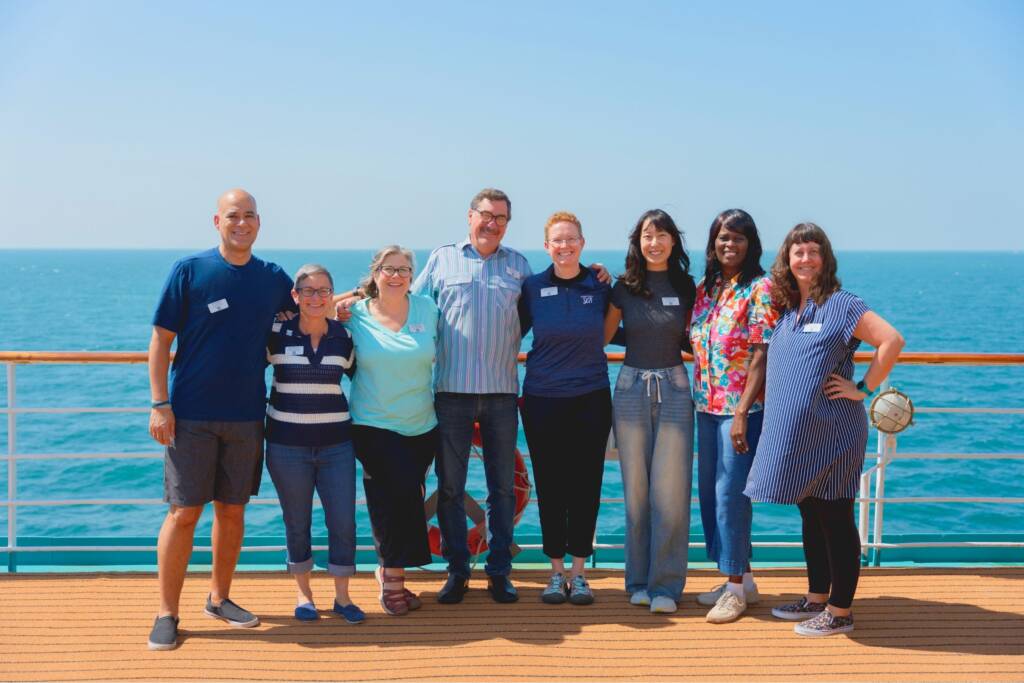As SAS alumni, you know how a voyage can transform you. It can change the way you understand and interact with the world by introducing you to people from all over the globe with whom you naturally form lifelong bonds and connections. Other connections may come less easily but are equally essential. In fact, sometimes the experience can teach more about the more challenging aspects of human connection, including how to have tough conversations with those who might disagree with you. In those encounters and discussions on deck, in cabins, in the classroom, and elsewhere, voyagers often learn by not seeking agreement but pursuing understanding.
Being part of the SAS community involves learning that these difficult conversations are indeed part of the enduring global human experience. Learning how to navigate these dialogues with deliberation– and a desire to work towards communal learning and development with compassion and a mutual desire for understanding–is an essential SAS experience and outcome.
On the Spring 2024 Voyage, this opportunity to engage in tough conversations came to light amidst ongoing conflicts in Israel and Gaza. While the Fall 2023 Voyage was rerouted several times due to the conflict and its impacts across the Middle East, the Spring 2024 Voyage was impacted in a different way.
In the last few minutes of her planned remarks, a visiting interport lecturer compared Palestinians living in Gaza and Israel to those living in the South African apartheid regime. The remarks prompted a series of reactions that rippled through the shipboard community in the days that followed. Some felt seen, heard, and even vindicated by the speaker’s comments. Others felt attacked by the comparison – an attack they felt came at a vulnerable and scary time. In the days that followed, different members of the community advocated publicly for their views, voiced their fears and frustration, and in a few cases, showed their displeasure in ways that run counter to the program’s community norms, policies and expectations, such as when students removed posters they disagreed with or, in another case, placed posters on others’ doors.
Executive Dean Marti Fessenden and other VoLT (Voyage Leadership Team) members spoke with several voyagers and groups about their concerns. Students organized additional discussions and events to continue their own conversations about the ongoing crisis. Meanwhile, the voyage’s Dean of Student Life, Vernon Wall, called for more dialogue and engagement, assuring the shipboard community that the viewpoints of all mattered.
“We see you. We hear you,” Vernon wrote. “You belong.”
As can be the case in most any dialogue about such impactful and emotionally charged situations, there were still moments of contention when differing viewpoints continued to come to light across the ship. This, of course, can be the most difficult part of tough conversations; when emotions run high, and human lives, histories, and communities are continually impacted, how do we keep our composure and engage in such discussions with compassion in mind?
Executive Dean Marti Fessenden and President and CEO Scott Marshall led in contemplation of this question, among others, by sharing several shipboard messages that reminded all voyagers that they were always entitled to all of their rights to free speech, but that, at the end of the day, there is–and never will be–any place for expressions of hate on the ship.
“[Here is] my challenge to you, Voyage 133. Can you recognize the common humanity in all of us?” Marshall asked in a message to all voyagers. “Are you able to understand that differences are not the defining characteristic of who we are? Semester at Sea is that place and opportunity to grow into stronger global citizens.”
While this discourse and even disagreements are being discussed on college campuses around the world, they are very present for our students. Why? Because they are experiencing the world and its people, away from their normal sources of support, and in close quarters with a new community. Because ours is a uniquely rich and diverse community. And, among other reasons, because our program was founded to challenge students by putting the world, its issues, and its contradictions squarely in front of them.
Despite the challenges that came with these conversations, there was much to learn from engaging in them. In the end, ISE leadership encouraged compassion at every level. In an email to SAS staff and trustees, Scott added that, after the safety of all voyagers is ensured, seeking compassion in challenges is part of the SAS experience.
“Fundamentally, my starting point–and the starting point for our program–is compassion. Compassion for every human being. Every human being,” he wrote.
Despite the challenges of engaging in tough conversations on this voyage, Laura Strohminger, ISE/SAS Chief Program Officer and Vice President of Student Affairs, shared that, based on a climate survey on the Spring voyage, “a majority of students reported a high sense of belonging and safety.”
Even with this finding, and though the Spring 2024 voyage has now concluded, the ISE team recognized the need for continual work in these areas. Many enhanced efforts are now in progress, including additional training on navigating and brokering challenging dialogues for Fall 2024 and Spring 2025 VoLT teams. This work will also incorporate specialized training from the Moral Courage Project, in which voyage leadership team members will learn advanced strategies for transforming opposing viewpoints into opportunities for development.
Further, the ISE team is reviewing its policies for voyagers in the Voyager’s Handbook, ensuring that the standards for issues related to free speech, protest, and postering policies are clear and consistent. Other efforts include continued work on the voyage’s bias response protocols and teams, a deep assessment of the Spring 2024 climate survey data to help implement positive changes that will continue to make SAS a space where voyagers can thoughtfully engage in tough conversations, and a review of resources that will bolster efforts to promote peacebuilding activities.
“We know there will be conflict and differing viewpoints in the shipboard community and we welcome that,” Laura says. “We know tremendous growth happens when people engage with others who they perceive are different from them. We want to equip our teams and participants to engage in these conversations in ways that do not divide the community. Semester at Sea is uniquely positioned to create these opportunities, as community learning and connection is at the core of our program.”
In the end, every SAS voyage is transformative, and navigating challenging conversations can lead us closer to the very core of the SAS mission–and allow us to look inward, resulting in stronger, more compassionate dialogue and mutual understanding.
“The mission of Semester at Sea is to create journeys of discovery that spark bold solutions to global challenges,” Scott wrote in his message to Spring 2024 voyagers. “What role will each of you play now and in the future to bring greater understanding, empathy, and peace to the world?”
“What you do next may not only change your life and impact but the world as well,” he said in closing. “Thank you for being a part of this community and for all you do for one another.”
This article is taken from the June 2024 issue of the Semester at Sea Alumni Newsletter.



